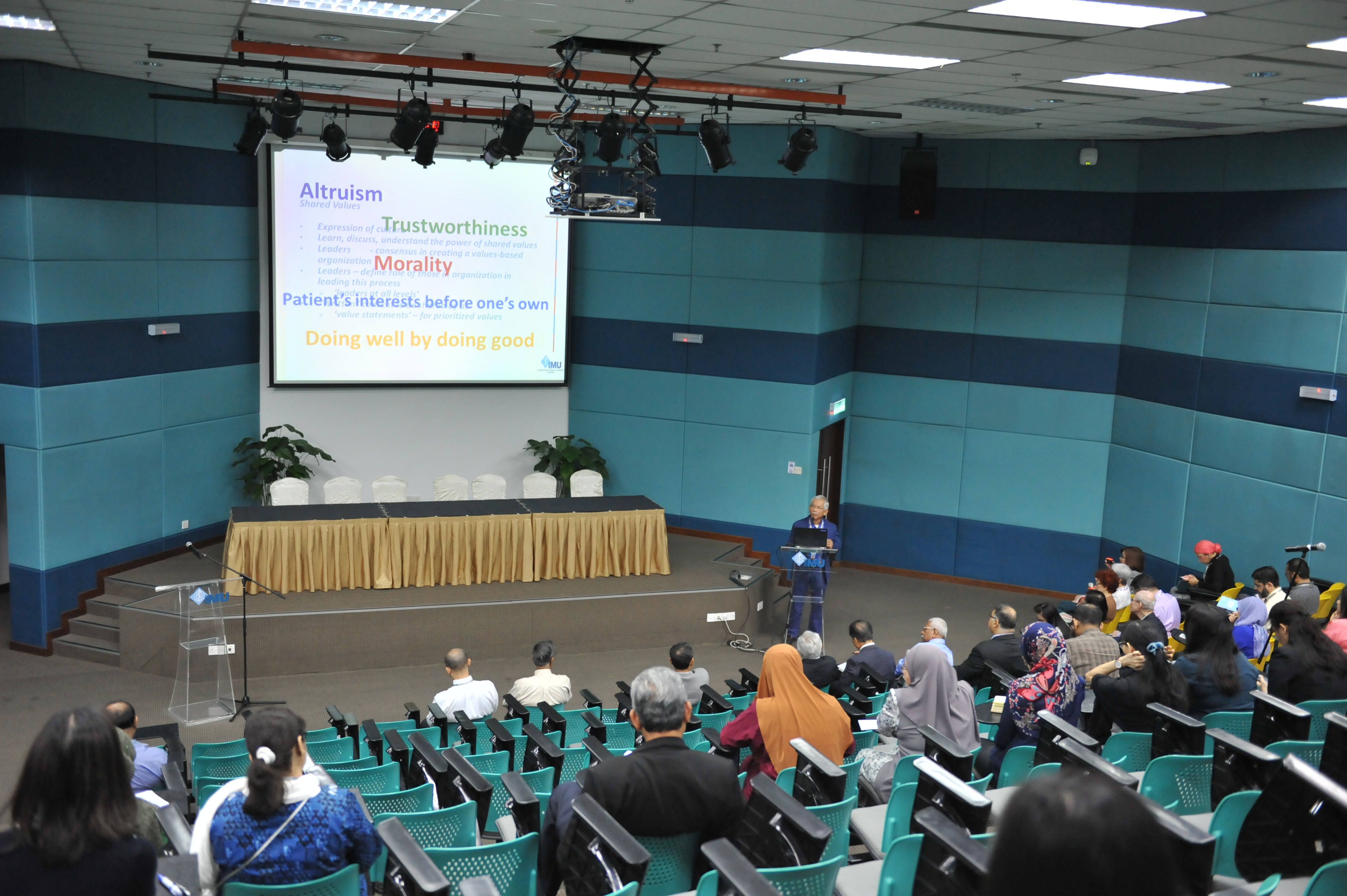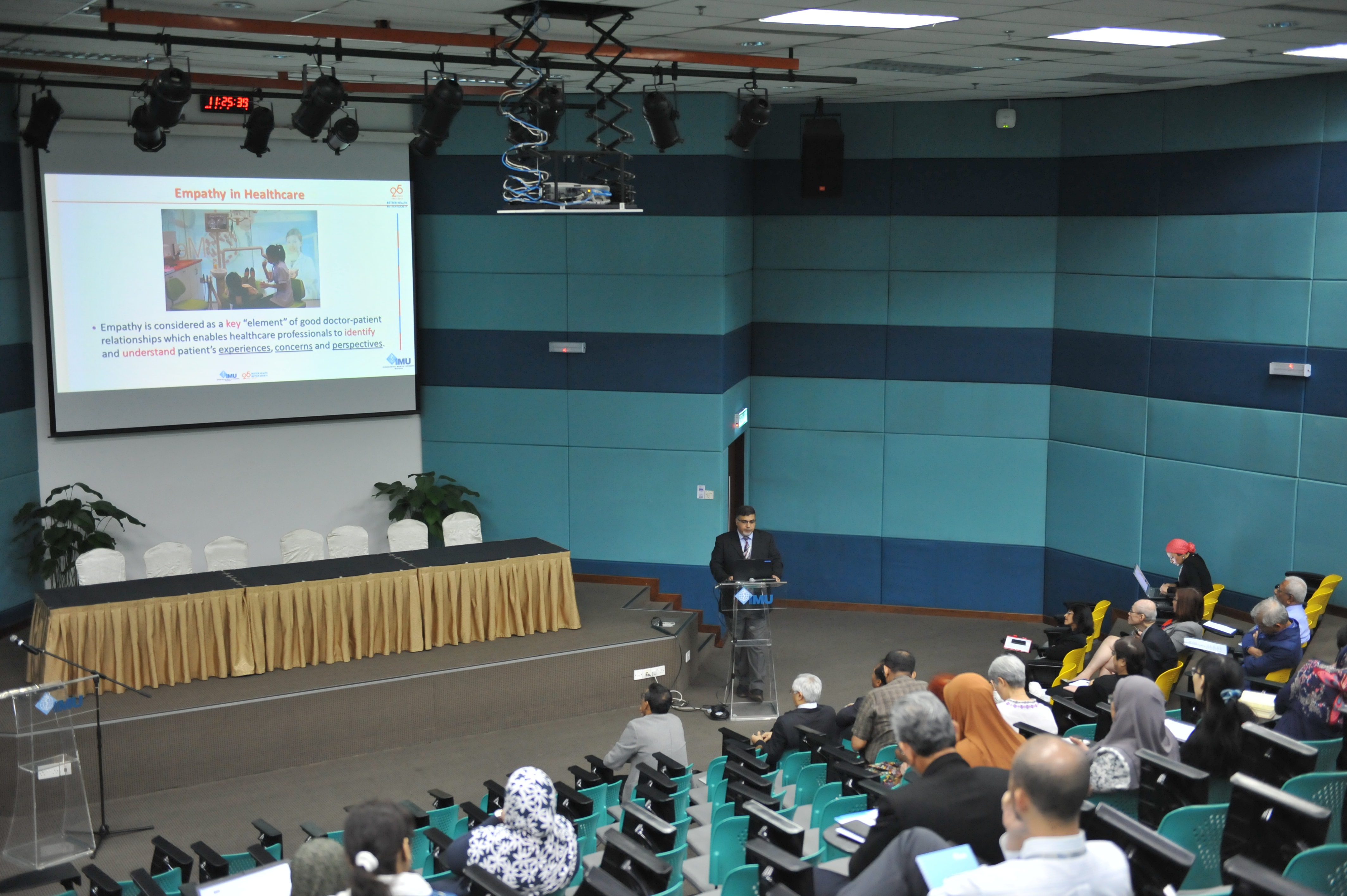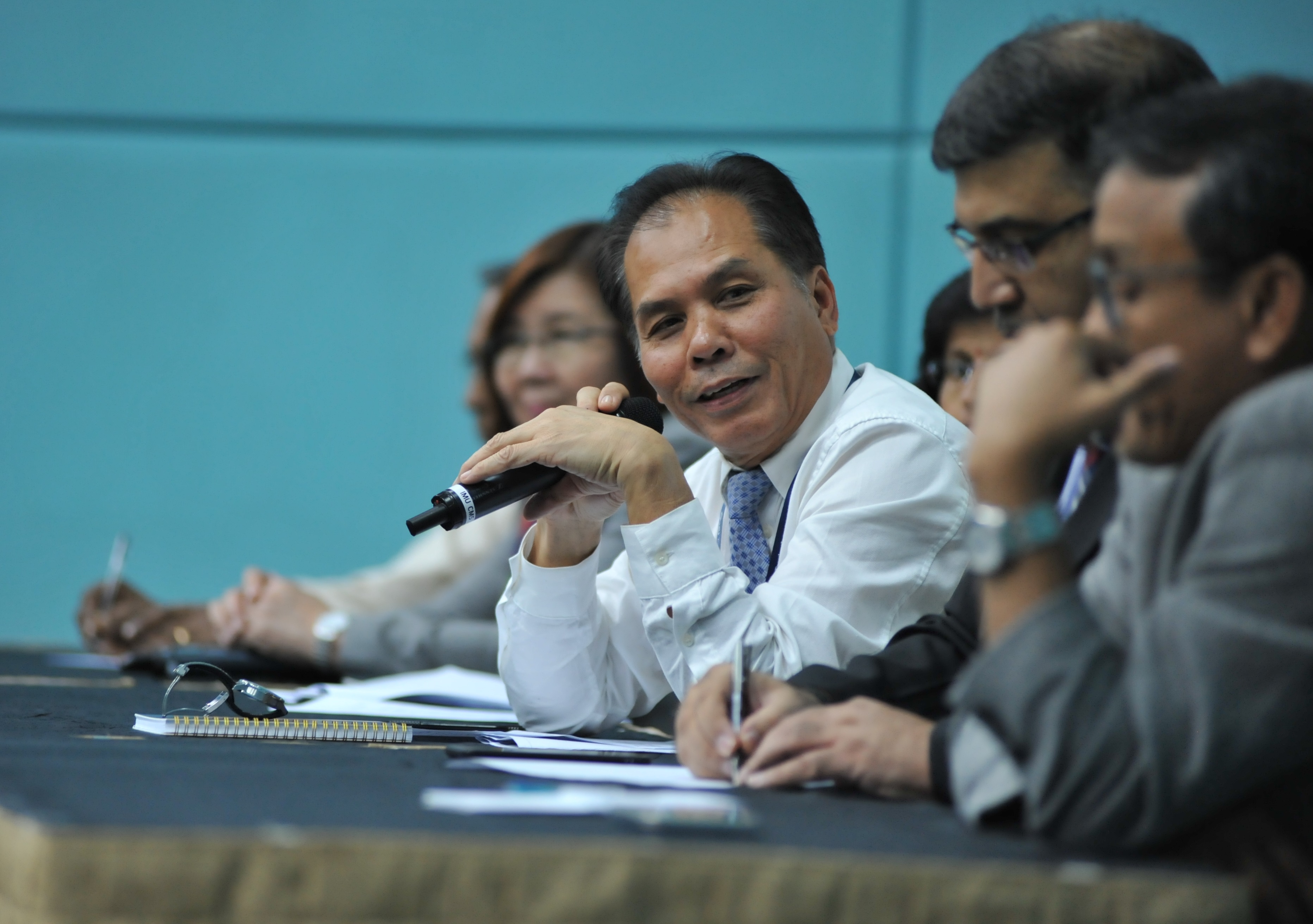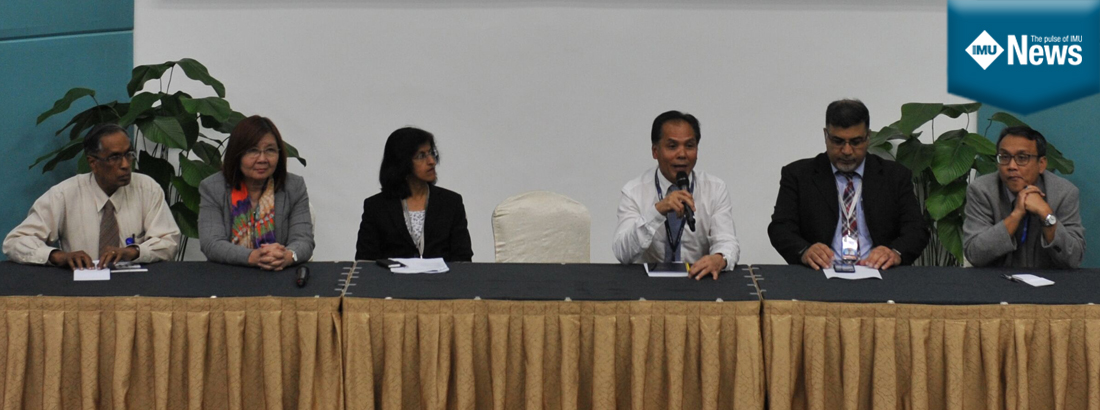Organisational culture is a system of shared assumptions, values, and beliefs which governs how its members behave in every organisation. Culture and values are also unwritten rules providing guidelines and boundaries for the behaviours of the members of an organisation. Values form the guiding principles for the institutional development in education, research and healthcare. The International Medical University (IMU), being a values-driven organisation, has its own value system, culture, and philosophy which forms the foundation to support what the university aspires to achieve in its vision and mission. In IMU, core values serve as a guide underpinning all teaching and learning activities. One of the essential core values IMU observe is none other than empathy.  On 8 September, 2017, the Institute for Research, Development, and Innovation (IRDI) had successfully organised a seminar titled “Empathy and Values that Matter” at the IMU campus in Bukit Jalil. This is the third seminar following the previous seminars on “Roles of the Professoriate and Scholarship in the Community” and “Will Health Professionals and Community Embrace Technology Enabled Care?”. This event was part of the IMU Book Series of Seminars organised by IRDI in conjunction with the IMU 25th Anniversary celebrations.
On 8 September, 2017, the Institute for Research, Development, and Innovation (IRDI) had successfully organised a seminar titled “Empathy and Values that Matter” at the IMU campus in Bukit Jalil. This is the third seminar following the previous seminars on “Roles of the Professoriate and Scholarship in the Community” and “Will Health Professionals and Community Embrace Technology Enabled Care?”. This event was part of the IMU Book Series of Seminars organised by IRDI in conjunction with the IMU 25th Anniversary celebrations.  The primary aim of this seminar was to explore organisational values alongside values in the domains of scholarship and academia, healthcare and health professions education of the future as well as to stimulate empathy as a sustainable practice and encourage empathy research. The main objective of this seminar was to raise awareness on the importance of empathy amongst the healthcare professionals, health education providers, and students. There were five speakers in this seminar. A/Prof Gnanajothy Ponnudurai from the School of Medicine, IMU, kick-started the seminar by deliberating on the measures that need to be taken to promote and strengthen our values-driven culture. Prof Zabidi Azhar Hussin who is the Vice-chancellor of Perdana University subsequently gave his review on the book chapter on the strengthening of our values-driven culture.
The primary aim of this seminar was to explore organisational values alongside values in the domains of scholarship and academia, healthcare and health professions education of the future as well as to stimulate empathy as a sustainable practice and encourage empathy research. The main objective of this seminar was to raise awareness on the importance of empathy amongst the healthcare professionals, health education providers, and students. There were five speakers in this seminar. A/Prof Gnanajothy Ponnudurai from the School of Medicine, IMU, kick-started the seminar by deliberating on the measures that need to be taken to promote and strengthen our values-driven culture. Prof Zabidi Azhar Hussin who is the Vice-chancellor of Perdana University subsequently gave his review on the book chapter on the strengthening of our values-driven culture.
A/Prof Muneer Gohar Babar, Acting Head of the Children and Community Oral Health Division and Dentistry Programme Director of the School of Dentistry, IMU, spoke on leading with empathy in the 21st century. This was followed by a review on the same topic deliberated by Dato’ Dr. Abdul Hamid Abdul Kadir who is a consultant orthopaedic surgeon from Assunta Hospital and Prof Dato’ Dr Khalid Yusoff who is the Vice-Chancellor and President of UCSI University. Last but not least, there was an interactive forum reviewing the book chapter on IMU Value System, Culture and Philosophy moderated by Prof Abdul Aziz Baba, the Vice-Chancellor of IMU.
Values have a major influence on attitudes and behaviour, and subsequently on organisational performance. In view of the changes in the healthcare system of the future, it is noteworthy to examine the role of organisational values and culture in ensuring the success and sustainability of a healthcare organisation. No doubt that healthcare is one area of life where empathy really matters and hence, it is an important aspect covered in the upcoming IMU Book.  At different times, doctors, dentists, nurses, pharmacists, patients, managers, carers, policymakers, and the general public all need to stand in each other’s shoes and see the world through each other’s eyes. Empathy is simply recognising emotions in others, and being able to understanding the other person’s perspective and reality. This seminar therefore is aimed to address the values important to academics, clinicians and practitioners, and to share and discuss the challenges they encountered in inculcating values and establishing empathic relationships within healthcare context. The healthcare landscape of the world is changing rapidly. Health professions education institutions including IMU will have to stay relevant and produce graduates who are able to function in the changing environment. Therefore, the education and training of the healthcare professionals will need to change to meet the industry needs to produce future healthcare graduates who are able to function as a scholar and researcher. Formation of future scholars does not only involve development of intellectual expertise, but the growth of “the personality, character, habit and mind”. Values such as ethics, professionalism and integrity should be embraced in the nurturing of future scholars.
At different times, doctors, dentists, nurses, pharmacists, patients, managers, carers, policymakers, and the general public all need to stand in each other’s shoes and see the world through each other’s eyes. Empathy is simply recognising emotions in others, and being able to understanding the other person’s perspective and reality. This seminar therefore is aimed to address the values important to academics, clinicians and practitioners, and to share and discuss the challenges they encountered in inculcating values and establishing empathic relationships within healthcare context. The healthcare landscape of the world is changing rapidly. Health professions education institutions including IMU will have to stay relevant and produce graduates who are able to function in the changing environment. Therefore, the education and training of the healthcare professionals will need to change to meet the industry needs to produce future healthcare graduates who are able to function as a scholar and researcher. Formation of future scholars does not only involve development of intellectual expertise, but the growth of “the personality, character, habit and mind”. Values such as ethics, professionalism and integrity should be embraced in the nurturing of future scholars. 
Empathy is an indispensable skill in medicine and is an integral part of ‘professionalism’. Ethical decision making and moral judgments, in particular, are strongly dependent on empathy. Emphatic engagement in patient care leads to better patient compliance, more accurate diagnosis, more accurate prognosis, increased patient satisfaction, and decreased likelihood of litigation against healthcare providers. However, ironically, as our technological connectedness has increased, there does not appear to be a proportionate increase in global empathy but relatively decreasing empathy. Nevertheless, it is crucial to increase the level of awareness of digital empathy among healthcare providers due to the growth of computer-mediated communication.
In a nutshell, universal virtuous values should still be upheld as the pillar underlining all thoughts and actions within the IMU community, with an emphasis on but not confined to professionalism, teamwork and caring. Values-based training and development should be provided to strengthen the processes of institutionalising the values into the IMU work system, creating a conducive work environment for staff and students to live the values. Openness to change and transcendence should be given prominence in the moulding of future healthcare practitioners.









